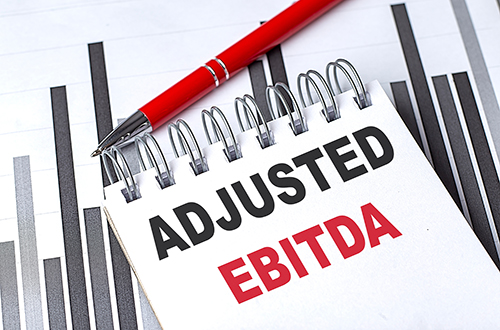A guide to selling your business - part six: Understanding cash free, debt free
When valuing a business for sale, "cash free, debt free" is often mentioned. But what does this term mean?
A cash free, debt free transaction involves the buyer acquiring the target company without assuming either its cash nor its debt. Essentially, the seller retains all surplus cash and is responsible for paying off external debts.
Enterprise value and equity value: what’s the difference?
Enterprise value and equity value are metrics used to value a business, each offering a slightly different view. Both are summarised below, though if you need further clarification or support then please contact our team at Rickard Luckin.
Enterprise value
Enterprise value is typically calculated by multiplying the company’s adjusted EBITDA by a market multiple to reflect the value of its ongoing trade.
Equity value
Equity value takes into consideration the cash free, debt free adjustment to the enterprise value, by:
- adding any surplus cash and cash like items,
- deducting any external debt and debt like items, and
- making an adjustment for the working capital cycle of the business.
The sum total of surplus cash, cash like items, external debt, and debt like items is known as the surplus asset. If this total is negative, it can also be known as net debt. This typically comprises cash in the bank, any other cash like items (such as loans that are owed to the company or rent deposits), corporation tax, bank loans, credit cards, and any other external debt.
The total surplus asset or net debt figure is added to or deducted from the enterprise value. There is usually a further adjustment to account for the company’s working capital cycle, ensuring the business is left with enough working capital to continue operating post sale.
Working capital includes items such as trade debtors, prepayments, trade creditors, VAT and accruals.
The average working capital is typically assessed for the period twelve months prior to completion of the sale. This average is known as the working capital target, which is deducted from the actual working capital at the date of completion. If the figure is positive, it is also added to the enterprise value. If the figure is negative, it is deducted from the enterprise value.
Equity value = enterprise value + working capital adjustment +/- surplus asset / net debt:
| £ | July 2024 | |
| Adjusted EBITDA | 1,000,000 | |
| Multiple | 5.0x | |
| Enterprise value | 5,000,000 | |
| Actual working capital at 31/7/24 | 400,000 | |
| Target working capital LTM | 350,000 | |
| Working capital adjustment | 50,000 | |
| Surplus assets | 1,000,000 | |
| Equity value | 6,050,000 |
Why equity value matters
Equity value is crucial because it illustrates the consideration payable at sale completion, compared to the enterprise value.
In summary, if your business has more external debt than cash then the equity value may be lower than the enterprise value. If there is surplus cash, the equity value will be higher than the enterprise value.
If you are preparing to sell your business, our Corporate Finance Team at Rickard Luckin will help you illustrate the bridge between enterprise value and equity value, for a clearer picture of its overall sale value.
If you have any questions about the above, or would like more information specific to your circumstances, please enter your email address below and we will get in touch:
















